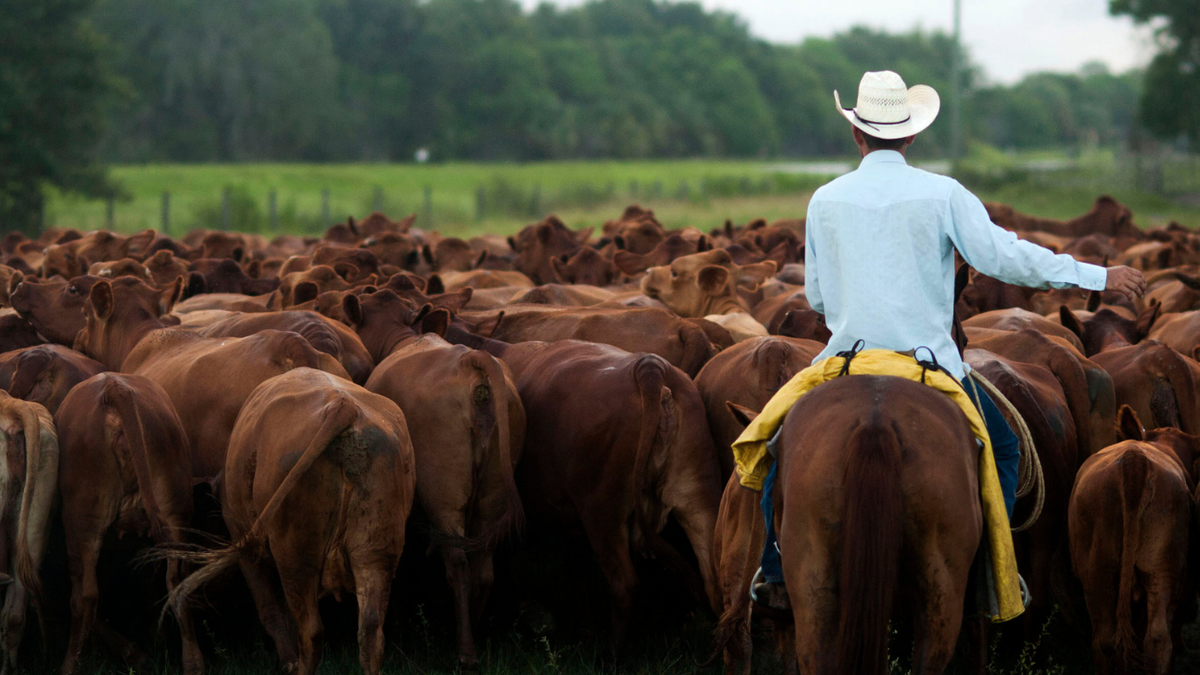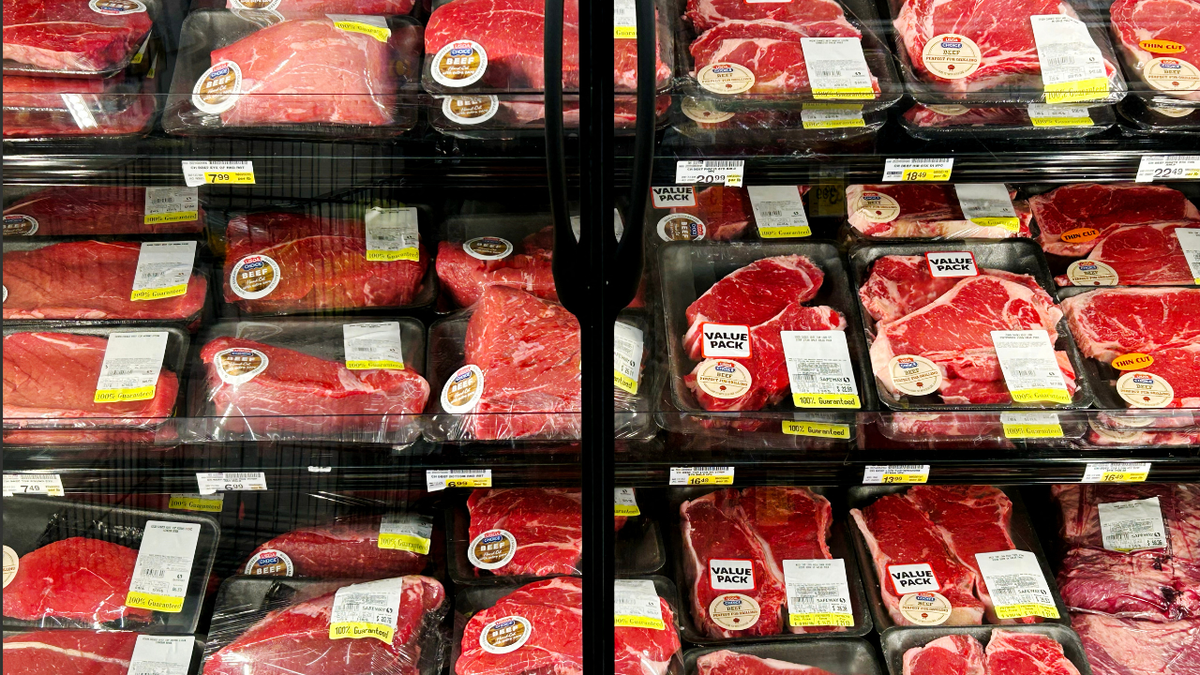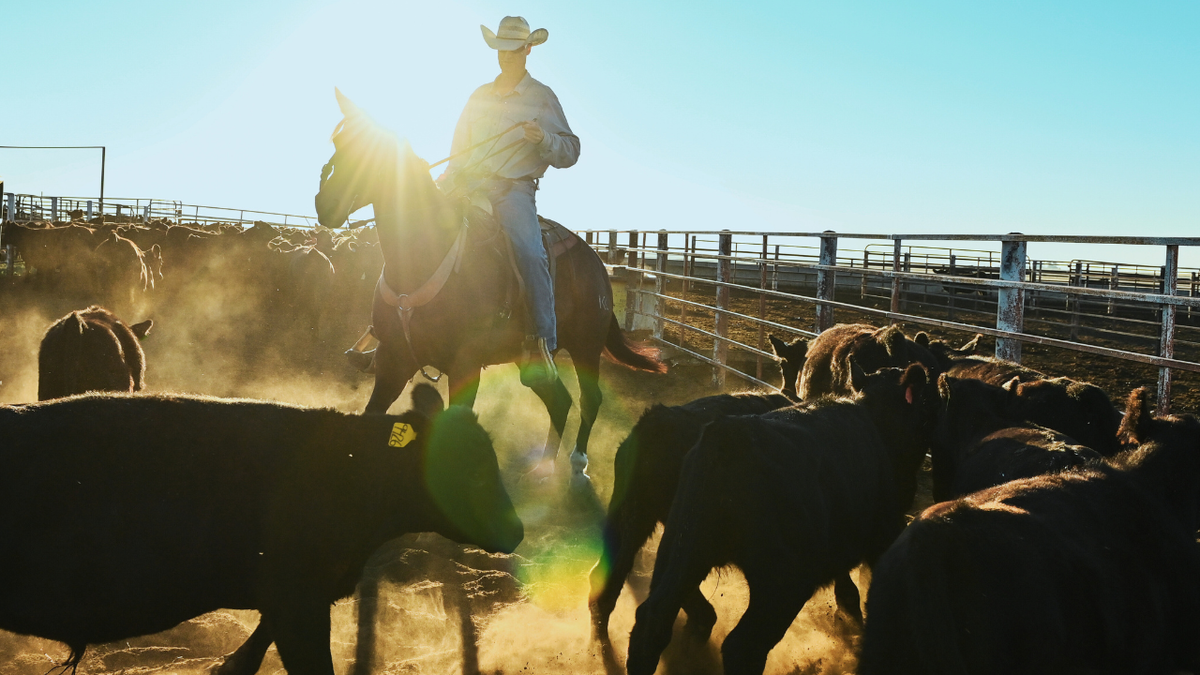NEWYou can now listen to Fox News articles!
While President Donald Trump’s proposal to import more beef from Argentina is billed by the administration as a way to bring down prices for American consumers, critics say it misses the real issue driving costs at the grocery store: corporate concentration in the U.S. meatpacking industry.
Four corporations — Tyson, JBS, Cargill and National Beef — anchor the U.S. beef supply chain, with pricing power that reaches from pasture to plate. As a result, the gap between what producers are paid for cattle and what consumers spend on beef has remained wide, a reflection, economists say, of how market power is distributed along the supply chain.
Fox News Digital reached out to all four companies for comment but did not receive a response as of publication.
TRUMP ADMIN EYES ARGENTINE BEEF IMPORTS AS DOMESTIC PRICES SOAR TO RECORD HIGHS
The frustration extends beyond farm country – Rep. Thomas Massie, R-Ky., says the dominance of multinational meatpackers is hurting both producers and consumers.
“Four corporations control 85% of the meat sold in the United States. One of these corporations is Chinese-owned and one is Brazilian-owned. American farmers are being squeezed and American consumers are being gouged,” Massie told Fox News Digital.
Massie, who raises cattle on his Kentucky ranch, warned that expanding beef imports from Argentina would only worsen those structural problems.
“Flooding the market with Argentinian beef is not the answer to these problems. An America First solution to rising beef prices is to pass my PRIME Act, which would empower American farmers to sell directly to consumers without interference from global corporate middlemen,” Massie said.
Under current federal law, beef processed at small, state-inspected facilities can’t be sold across state lines, even if it meets the same health standards as federally inspected meat. Massie’s PRIME Act would remove that barrier, a change supporters say would let local ranchers reach more consumers and compete with the big packers.
GOP LAWMAKERS WARN TRUMP’S ARGENTINA BEEF PROPOSAL COULD RATTLE US RANCHERS

Economists agree the beef market is highly consolidated, but say the forces shaping prices go well beyond any one trade deal.
Glynn Tonsor, a professor of agricultural economics at Kansas State University, told Fox News Digital that strong consumer demand continues to drive beef prices higher, regardless of supply fluctuations.
“There’s nothing that forces me or you or anybody else when we go into the grocery store to pay more for beef. People are choosing to,” he said. “The consumer desire for beef is strong and, regardless of the supply-side situation, that has the effect of pulling prices up.”
He also noted that the large-scale structure of the U.S. meatpacking industry, often criticized by ranchers and lawmakers, has economic benefits for consumers.
“I would argue that those economies of scale benefit consumers,” Tonsor said. “The ability to operate at a cheaper cost per head and, ultimately, per pound produced gives us the ability to offer beef and every other item we’re talking about at a cheaper price. Anything we do that loses those economies of scale actually hurts consumers in the form of higher prices.”
FROM CATTLE TO CRUDE: HOW TRUMP’S TARIFFS ARE RATTLING THE LONE STAR STATE

Derrell Peel, a professor of agricultural economics at Oklahoma State University, said that even if U.S. imports from Argentina increase, the impact on overall prices would be negligible.
“Most of what we import is lean, processed beef trimmings used for ground beef,” said Peel, who specializes in livestock marketing. “We’re not talking about the kind of beef that affects steak prices. Even if we doubled imports, it would be such a small share of the total supply that we wouldn’t detect any real impact.”
Peel added that there’s no quick way to ease pressure on cattle prices, since it takes roughly two years to bring animals to market and several years to rebuild herds.
“The fact of the matter is there’s really nothing anybody can do to change this very quickly,” he said. “We’re in a tight supply situation that took several years to develop, and it’ll take several years to get out of it.”
BEEF PRICES HIT RECORD HIGHS AS NATIONWIDE CATTLE INVENTORY DROPS TO LOWEST LEVEL IN 70 YEARS

Meanwhile, the White House defended the plan, saying it’s aimed at balancing relief for consumers with long-term support for U.S. cattle producers.
“The president loves our ranchers, and he also loves American consumers, and he wants to do right by both,” White House press secretary Karoline Leavitt said on Wednesday.
Leavitt said Trump’s immediate goal is to lower beef prices by increasing supply through additional imports, while a separate, long-term plan will focus on strengthening the domestic cattle industry.
She pointed to a three-part plan announced by Agriculture Secretary Brooke Rollins, which includes expanding grazing access, easing regulations for new ranchers, cutting inspection costs and improving “Product of USA” labeling to ensure consumers know when they’re buying American-made beef.
Read the full article here










